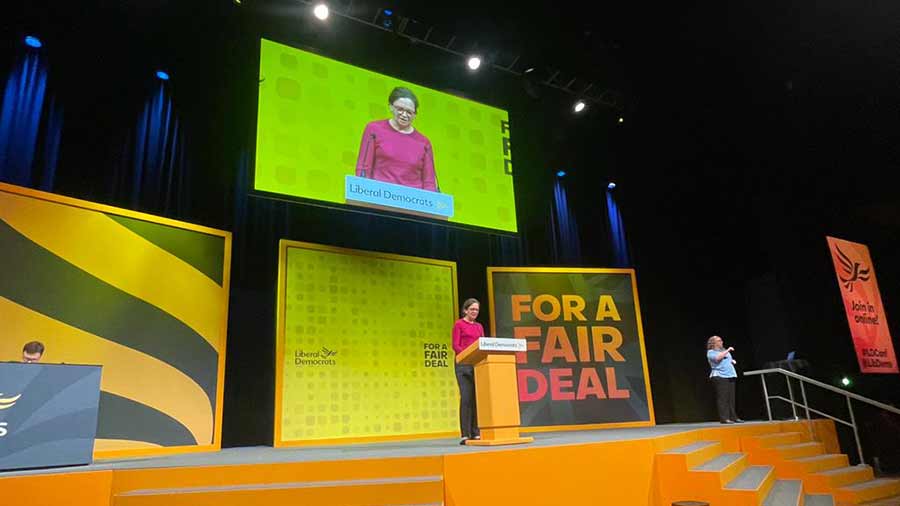Hill farming advocate addresses Lib Dems conference
 Julia Aglionby © Tim Farron
Julia Aglionby © Tim Farron Upland farming advocate Julia Aglionby has addressed the Liberal Democrats conference about her plans to become an MP.
Ms Aglionby was earlier revealed as the Lib Dems’ prospective parliamentary candidate for the new constituency of Penrith & Solway in the next general election.
She will be resigning from her role as executive director of the Foundation for Common Land to focus her efforts on winning the constituency.
See also: Libs Dems demand extra £1bn/year for farming
So far, Workington MP Mark Jenkinson (Conservative) is the only other candidate declared to contest the seat in the largely rural constituency.
At the Lib Dem autumn conference in Bournemouth on Monday 25 September, Ms Aglionby spoke out in support of her party’s motion to add an extra £1bn to the annual farming budget.
The Lib Dems says the policy pledge would increase Defra’s annual farming budget to more than £4.4bn, and the extra £1bn/year would be allocated to the Environmental Land Management scheme as part of its “For a Fair Deal” policy plans.
“Currently, we spend a mere 0.3% of UK expenditure on farming and environmental schemes. The extra £1bn/year proposed by the Lib Dems will put up that proportion to 0.4% of government expenditure,” Ms Aglionby told conference delegates.
“Not much to pay for looking after 70% of England, securing sustainable food, enhanced biodiversity, access to nature and tackling the climate crisis. In effect, creating a natural health service.”
‘Desperate situation’
Ms Aglionby said farmers in her rural constituency were in a “desperate” situation and she accused the Conservative Party of failing them and 84,000 farmers in England “by their mismanagement of the transition from the Common Agricultural Policy to Environmental Land Management”.
Hundreds of hill farmers have suffered a 63% decrease in earnings this year, leaving them “not enough to live on”, and dairy farmers have seen their milk price crash from 57p/litre last year to 33p/litre now.
